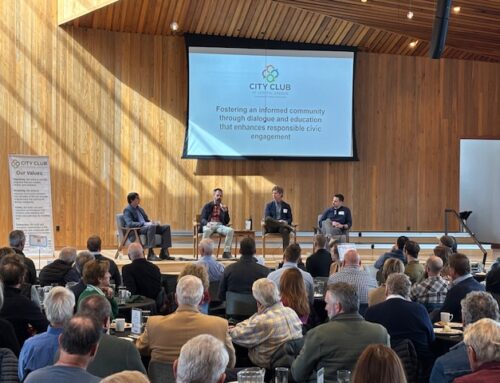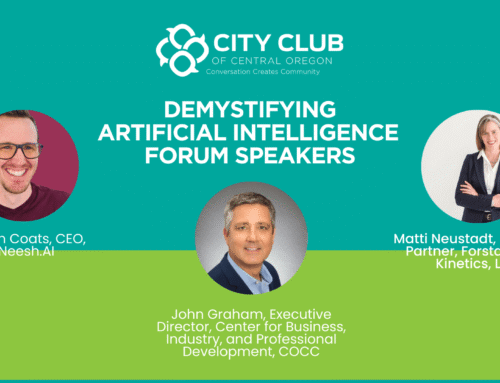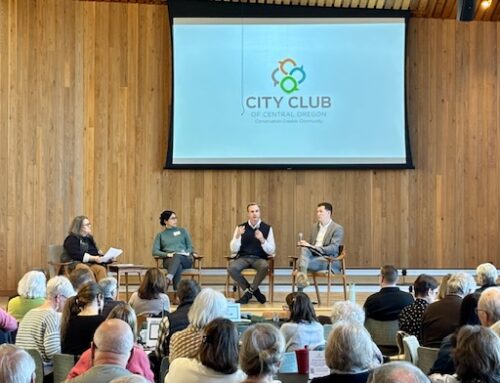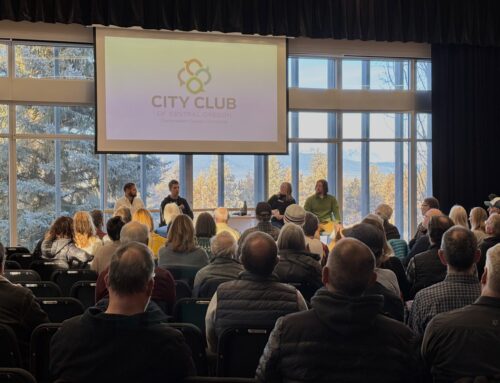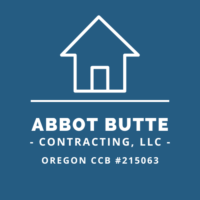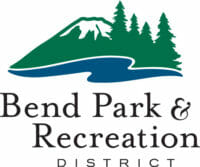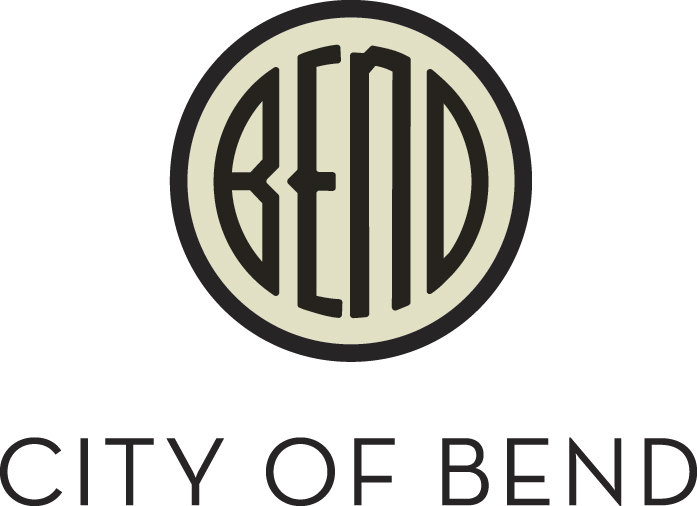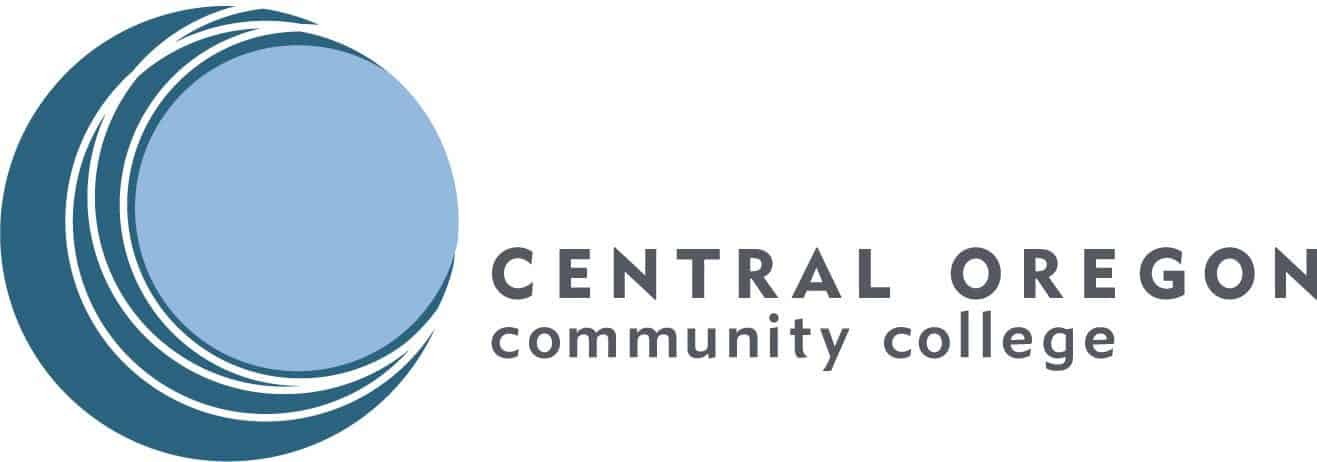April 18, 2024
LISTEN TO THE FORUM:
Speakers:
Opening Remarks from Claudia Chwalisz of Democracy Next
Panelists:
- Alex Renirie from Health Democracy
- Josh Burgess from the Central Oregon Civics Action Project
- Megan Perkins, Bend City Council
Moderated by: Nicole Vulcan, Editor at The Source Weekly
On Thursday, April 19, City Club of Central Oregon hosted an introduction to a civic process called Citizen Assemblies. This model of citizen engagement is gaining significant traction across the globe. As a community, we held this question:
Are Citizen Assemblies a fresh way we can own complex issues and contribute productively to decision-making in a distinctly “Bend” way?
In case you missed the forum, please consider these reflections from Claudia Chwalisz of Democracy First, who opened the conversation (see resources below for full text):
Imagine you receive an invitation one day from your mayor, inviting you to serve as a member of your city’s newly established permanent Citizens’ Assembly. You will be one of 100 others like you — people who are not politicians or even necessarily party members. All of you were drawn by lot through a fair and random process called a civic lottery. Together, you are broadly representative of the community — a mix of bakers, doctors, students, accountants, shopkeepers and more. You are young and old and from many backgrounds — everybody living in the city over age 16 is eligible, and anyone can take part regardless of citizenship status. Essentially, this group of 100 people is a microcosm of the wider public. Your mandate lasts for one year, after which a new group of people will be drawn by lot.
This is not just a thought experiment. Since the 1980s, a wave of such citizens’ assemblies has been building, and it has been gaining momentum since 2010. Over the past four decades, hundreds of thousands of people around the world have received invitations from heads of state, ministers, mayors and other public authorities to serve as members of over 500 citizens’ assemblies and other deliberative processes to inform policy making. Important decisions have been shaped by everyday people about 10-year, $5 billion strategic plans, 30-year infrastructure investment strategies, tackling online hate speech and harassment, taking preventative action against increased flood risks, improving air quality, reducing greenhouse gas emissions and many other issues.
As governance systems are failing to address some of society’s most pressing issues and trust between citizens and government is faltering, these new institutions embody the potential of democratic renewal. They create the democratic spaces for everyday people to grapple with the complexity of policy issues, listen to one another and find common ground. In doing so, they create the conditions to overcome polarization and strengthen societal cohesion. They bring out the collective intelligence of society — the principle that many diverse people will come to better decisions than more homogeneous groups.
Research also shows that being a member of a deliberative body strengthens people’s agency. It creates a collective consciousness and allows us to harness our collective capacity. Moreover, deliberative institutions strengthen democracy by extending the privilege of representation to a much larger and more diverse group of people, allowing them to play an important role in shaping decisions affecting people’s lives. (C. Chalwisz, Noema, May 12, 2022)
Facilitated by Nicole Vulcan, editor at The Source Weekly, event panelists included Alex Renirie from Health Democracy, Josh Burgess from the Central Oregon Civics Action Project (COCAP) and Megan Perkins, Bend City Council.
As a new community entity, the Central Oregon Civic Action Project (COCAP) is a partnership between non-profits (DemNext and Healthy Democracy), OSU Cascades and local governments. Their long-term aims are to improve local governance and help bring Central Oregonians together through service to our community.
The conversation on Citizen Assemblies was thought-promoting and enlivening. We look forward to future explorations of this novel format for citizen engagement and decision making across Central Oregon.
For more information on Citizen Assemblies, please see resources below:
Resources:
- Central Oregon Civics Action Project
- 12,000 in Deschutes County invited to youth homelessness civic assembly– Central Oregon Daily News
- Local Citizen Assemblies to Start this Fall – The Source
- Results from topic survey at the forum.
- Bend Starting Citizens Assembly This Summer – KBND
- Editorial: Does Deschutes County need a do over on setting policy? – The Bulletin
- A New Means Of Community Involvement – The Source
- Bend City Council Presentation
- How to Support this Work in Central Oregon
- 18 April 2024- Citizens’ Assemblies presentation – Bend City Club
- Citizens’ assemblies: are they the future of democracy?
- Six Ways to Democratize City Planning” White Paper
- A Movement That’s Quietly Reshaping Democracy For The Better
- The future of California democracy? Look no further than Petaluma
- It’s like jury duty, but for getting things done
- Public Democracy LA discusses the significance and need for citizens’ assemblies
- The public is ready for citizens’ assemblies – civil servants should embrace this (UK)
- Citizens’ assemblies: is Labour’s plan the overhaul our democracy needs? (UK)
- ‘Deliberative democracy’: Some groups already planning their climate change response(NZ)
The Central Oregon Civic Action Project (COCAP) is a partnership between non-profits (DemNext and Healthy Democracy), OSU Cascades and local governments. Their long-term aims are to improve local governance and help bring Central Oregonians together through service to our community.

